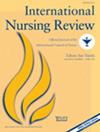Maternal health challenges in the Gaza conflict and its impact on nursing
Abstract
Background
The Gaza conflict, characterized by ongoing violence and restricted access to healthcare, poses significant challenges to maternal healthcare. Studies indicate that the conflict exacerbates malnutrition, trauma, and healthcare worker burnout, compromising the physical and psychological well-being of pregnant women and hindering nursing practice.The aim of this paper is to critically examine maternal healthcare challenges in the Gaza conflict and their implications on nursing functions, highlighting the need for evidence-based interventions to improve health outcomes for patients.
Methods
The evidence for this paper has come from observations and experience, discussion with colleagues and reveiw of avialable emperical and non emperical literature.
Discussion
The conflict has undermined the quality and availability of maternal healthcare services, exposing pregnant women to increased health risks while burdening nurses with unsustainable workloads and emotional strain. The current response is inadequate, highlighting the need for a comprehensive and coordinated approach to address the systemic challenges faced by mothers and healthcare providers.
Conclusion
To mitigate the impact of the conflict on maternal health, a concerted effort is required from healthcare professionals, policymakers, and international organizations to restore healthcare infrastructure, secure essential supplies, and provide mental health support for nurses.
Implications for nursing and health policy
The Gaza conflict underscores the need for policy interventions to prioritize trauma-informed care, enhance nurses' training in resource management, and ensure access to essential supplies and equipment. By addressing these challenges, it is possible to improve maternal health outcomes and support the critical nursing role in this conflict-affected setting.

 求助内容:
求助内容: 应助结果提醒方式:
应助结果提醒方式:


